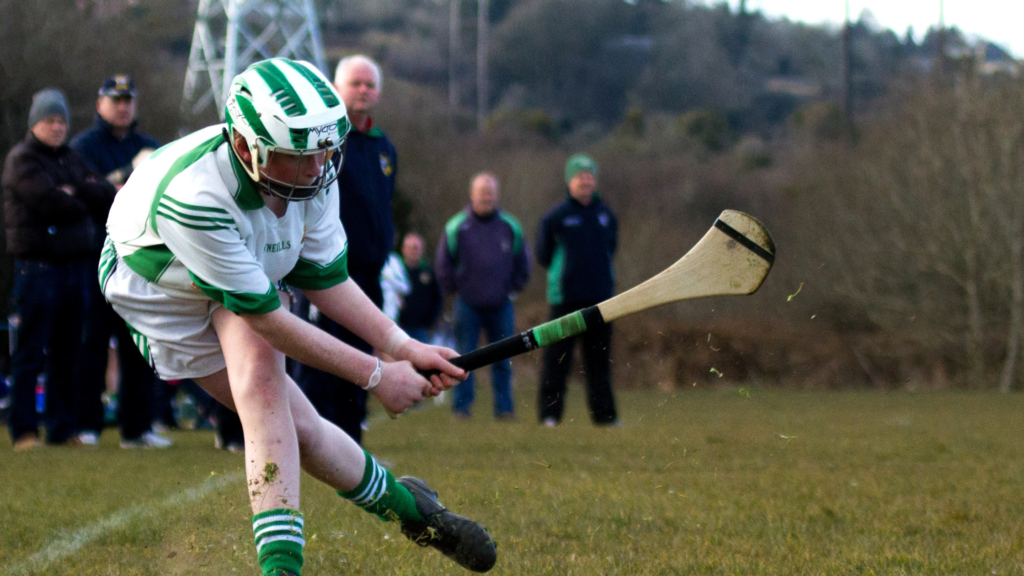Gaelic football and hurling, require a combination of speed, agility, strength, and endurance, making them thrilling to watch and participate in. However, like any contact sport, Gaelic games come with the risk of injury. In this article, we will discuss some of the most common Gaelic injuries and provide tips on how to prevent them, allowing players to enjoy the games while staying safe.
Sprains and Strains
Sprains and strains are among the most common injuries in Gaelic games. They occur when ligaments (sprains) or muscles and tendons (strains) are stretched or torn. These injuries often happen due to quick directional changes, collisions, or overexertion.
Prevention:
- Proper warm-up and stretching routines before matches and training sessions can help prepare the muscles and ligaments.
- Ensure adequate hydration and maintain good nutrition to prevent muscle cramps and fatigue.
- Incorporate strength and conditioning exercises into your training regimen to improve overall muscle strength and stability.
Ankle Injuries
Ankle injuries, such as sprained ankles, are quite common in Gaelic games, particularly in football. These injuries can result from awkward landings, quick changes in direction, or collisions with other players.
Prevention:
- Wear properly fitting and supportive footwear with ankle support when playing Gaelic games.
- Practice balance and proprioception exercises to improve ankle stability.
- Strengthen your ankle muscles with targeted exercises to reduce the risk of sprains.
Concussions
Concussions are a serious concern in contact sports like Gaelic football and hurling. They can result from head-to-head collisions, tackles, or falls. Recognizing and addressing concussions promptly is crucial for the long-term health and safety of players.
Prevention:
- Always wear a well-fitted, approved helmet when playing hurling or Gaelic football.
- Encourage proper tackling techniques to minimize the risk of head injuries.
- Educate players, coaches, and officials on the signs and symptoms of concussions and the importance of reporting them.
Knee Injuries
Knee injuries, including ACL (anterior cruciate ligament) tears and meniscus tears, can be devastating for Gaelic players. These injuries often occur during rapid pivoting, twisting, or awkward landings.
Prevention:
- Focus on proper technique and body positioning during matches and training.
- Incorporate strength training exercises that target the muscles around the knee to provide better stability.
- Use knee braces and custom orthotics if you have a history of knee problems or as recommended by your physiotherapist
Shoulder Injuries
Shoulder injuries, such as dislocations and rotator cuff tears, can happen due to collisions, falls, or incorrect tackling techniques.
Prevention:
- Emphasize proper tackling form to avoid awkward shoulder contact.
- Strengthen the shoulder muscles through resistance exercises.
- Ensure players wear appropriate shoulder protection gear, if necessary.
Overuse Injuries
Overuse injuries can affect various parts of the body, including the lower back, shins, and knees. These injuries occur due to repetitive motions and can lead to chronic pain and discomfort.
Prevention:
- Allow adequate time for rest and recovery between matches and training sessions.
- Follow a well-balanced training program that includes strength, flexibility, and conditioning exercises.
- Pay attention to any signs of overuse injuries and seek medical advice promptly.
DON KELLY TREATMENT PLAN
At Don Kelly Physiotherapy and Acupuncture, we are confident that anyone who walks through our doors can be helped with our care and commitment to your recovery.
By following preventive measures and practicing proper techniques, players can significantly reduce the risk of common Gaelic injuries. It’s crucial for coaches, players, and officials to prioritize safety and ensure that everyone involved in the games understands the importance of injury prevention and management.


